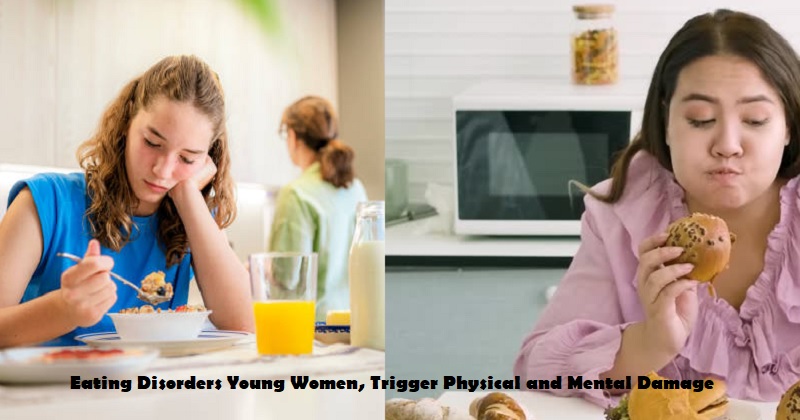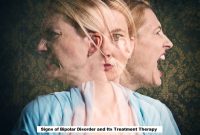Eating disorders young women are increasingly becoming a worrying problem. How could it not be, this eating disorder affects almost 35% of teenage girls in the world. Not infrequently, the condition develops silently until it can significantly affect their physical and mental health. So what really happens? Let’s review in more detail.

Understanding Eating Disorders Young Women
Eating disorders are eating behavior disorders. Where this is characterized by unhealthy eating habits or patterns. In teenage girls, the most common types of disorders found are anorexia nervosa, bulimia nervosa and binge eating disorder.
Each of these disorders has different characteristics. However, all are related to excessive control over food intake and an unbalanced body image.
Anorexia nervosa, for example, makes someone afraid of gaining weight. So that it encourages them to reduce food intake extremely. In bulimia nervosa, teenage girls tend to eat large amounts in a short time.
But then feel the need to get it out again by vomiting food or using laxatives. Meanwhile, in binge eating disorders, a person will eat excessively without controlling themselves. Even though they don’t really feel hungry.
Reasons Why Teenegers Are Vulnerable to the Risk of Eating Disorders
The condition of eating disorders young women who are so vulnerable is actually caused by a number of triggers. One of them is the social pressure they experience to have an ideal body.
In the explanation on the Michigan Medicine YouTube channel, the desire to meet this standard of beauty is often the main cause of dissatisfaction with their bodies. Young women are in a phase of life that is full of physical and emotional changes. So they are more easily influenced by their surroundings.
In addition, genetic and environmental factors also play a role. Teenagers who grow up in an environment that emphasizes physical appearance or have a family with a history of eating disorders are more at risk of experiencing this condition.
Often, eating disorders start with extreme dieting habits. This eventually develops into unhealthy eating behavior. There are also those who suffer from eating disorders due to bad traumas in the past.
Such as physical or emotional abuse that increases the risk of eating disorders. For some teenagers, controlling their bodies through eating is a way to deal with the helplessness they feel.
The Impact of Eating Disorders on Teenegers
Eating disorders young women not only affect physical health. But also mental health. The most obvious physical impacts are drastic weight loss, malnutrition, menstrual disorders, and damage to body organs. Anorexia, for example, can cause bones to become brittle. While bulimia can damage the digestive tract.
From a psychological perspective, eating disorders can trigger or worsen mental problems. Such as depression, anxiety and low self-esteem. Teenagers who suffer from eating disorders often feel trapped in an obsessive mindset about food and appearance. This will further disrupt their social and academic lives.
Handling Eating Disorders
Overcoming eating disorders requires a comprehensive approach and involves support from various parties. This includes involving experienced therapists or counselors to help teenagers overcome the emotional problems that underlie eating disorders. Cognitive behavioral therapy (CBT) is often used to change negative mindsets about the body and food.
If counseling is no longer helpful, teenagers with severe eating disorders may need medical treatment. Medication is an important tool to overcome the physical impacts caused.
In order for the results to be more optimal, family involvement is very important in the recovery process. Families need to learn how to support teenagers without putting pressure on their physical appearance. Likewise, the presence of a supportive social environment.
From the explanation above, we increasingly know that eating disorders young women are not trivial problems. It is important for every teenager who experiences an eating disorder to immediately get professional help. So that it will avoid more serious adverse effects. The sooner an eating disorder is identified, the greater the chance for recovery. /Edit



